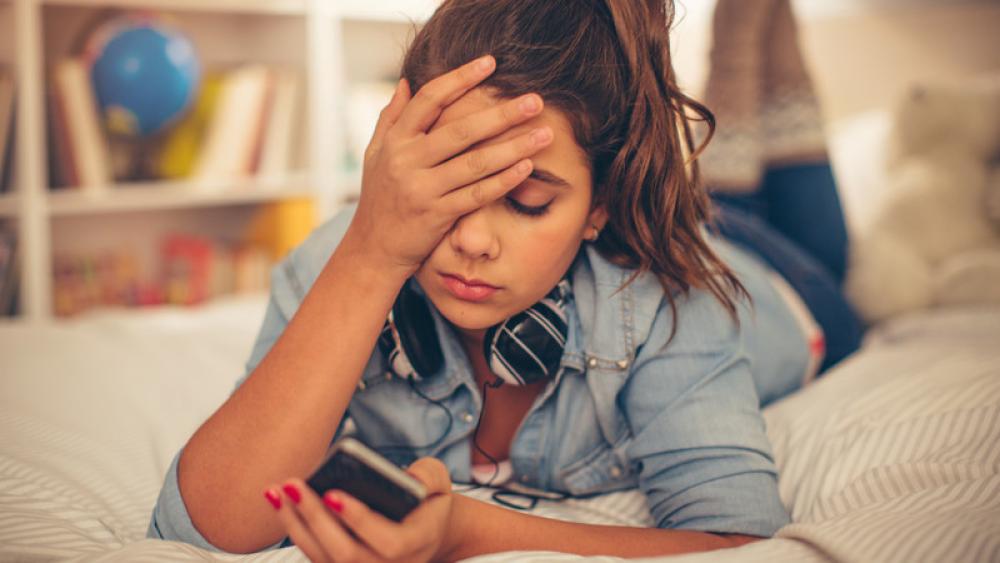TikTok sued for ‘wreaking havoc’ on teen mental health
3 min read
A coalition of 14 U.S. states has launched a significant lawsuit against TikTok, accusing the popular social media platform of contributing to a mental health crisis among teenagers. The bipartisan group of attorneys general alleges that TikTok employs addictive features to ensnare young users while misleading the public about the safety and appropriateness of its content for minors.
In response to the lawsuit, TikTok expressed disappointment, arguing that many claims made against it are “inaccurate and misleading.” This legal battle adds to the platform’s ongoing challenges, including a potential ban in the U.S. unless its Chinese parent company, ByteDance, divests its stake.
The lawsuit, filed in New York, claims that TikTok is aware of the harmful effects its platform has on the mental health of millions of American youths. “Despite such documented knowledge, TikTok continually misrepresents its platform as ‘safe’ and ‘appropriate for children and teenagers,’” the lawsuit asserts.
Tragic Incidents and Addiction
New York Attorney General Letitia James highlighted alarming incidents tied to TikTok’s influence, noting that young people have died or been injured while participating in viral challenges promoted on the platform. One case involved a 15-year-old boy who tragically died while “subway surfing,” a dangerous activity showcased in TikTok videos. James emphasized that the boy’s mother found footage of similar activities on his phone.
“TikTok claims that their platform is safe for young people, but that is far from true,” James stated, underlining the platform’s failure to protect its users. The lawsuit points to specific features that it argues exacerbate mental health issues, such as notifications that disrupt sleep, disappearing videos that encourage frequent checking, and beauty filters that distort users’ perceptions of reality.
While TikTok has introduced tools designed to help users manage screen time and filter content, the lawsuit contends that these measures are misrepresented in their effectiveness.
Legal and Regulatory Challenges
The lawsuits have been filed separately by 13 states and the District of Columbia, with the latter also accusing TikTok of operating an unlicensed money transmission business related to its virtual currency features. TikTok’s statement expressed a commitment to protecting teenagers and indicated a willingness to continue improving its platform.
The lawsuit seeks to prevent TikTok from engaging in practices deemed harmful and requests financial penalties for the alleged misconduct. The legal action adds to a growing body of cases against other tech giants like Facebook and Instagram, which have faced scrutiny for their impacts on young people’s mental health.
Previous Legal Actions and Future Implications
Prior lawsuits from states like Texas and Utah have also focused on child safety issues associated with TikTok. In addition, the Federal Trade Commission (FTC) accused the platform in August of violating child privacy laws, amplifying concerns regarding its practices.
Imran Ahmed, CEO of the non-profit Center for Countering Digital Hate, expressed optimism that this legal action would increase parental awareness of the risks associated with platforms like TikTok. He emphasized the need for stronger regulations to drive significant changes in the industry.
“This sends a signal of growing frustration regarding the lack of accountability mechanisms for these platforms,” he noted. Ahmed pointed out that while attorneys general are doing what they can with limited resources, the judicial system’s capacity to hold these companies accountable is constrained.
A Call for Accountability
The legal challenges facing TikTok come at a time when over half of U.S. teenagers reportedly use the app multiple times daily. The wave of lawsuits reflects a broader concern about how social media impacts the mental health of younger users, pushing state officials to seek accountability from tech companies.
As discussions continue about the responsibilities of social media platforms, the outcome of these lawsuits could set significant precedents. With growing public scrutiny and increasing regulatory pressures, TikTok and similar companies may be compelled to reevaluate their practices and implement more effective measures to safeguard young users.
The road ahead for TikTok is uncertain as it navigates this legal landscape while striving to maintain its popularity among the youth demographic. The ongoing discourse around mental health and social media usage is likely to evolve, prompting further examination of the industry’s impact on society.








